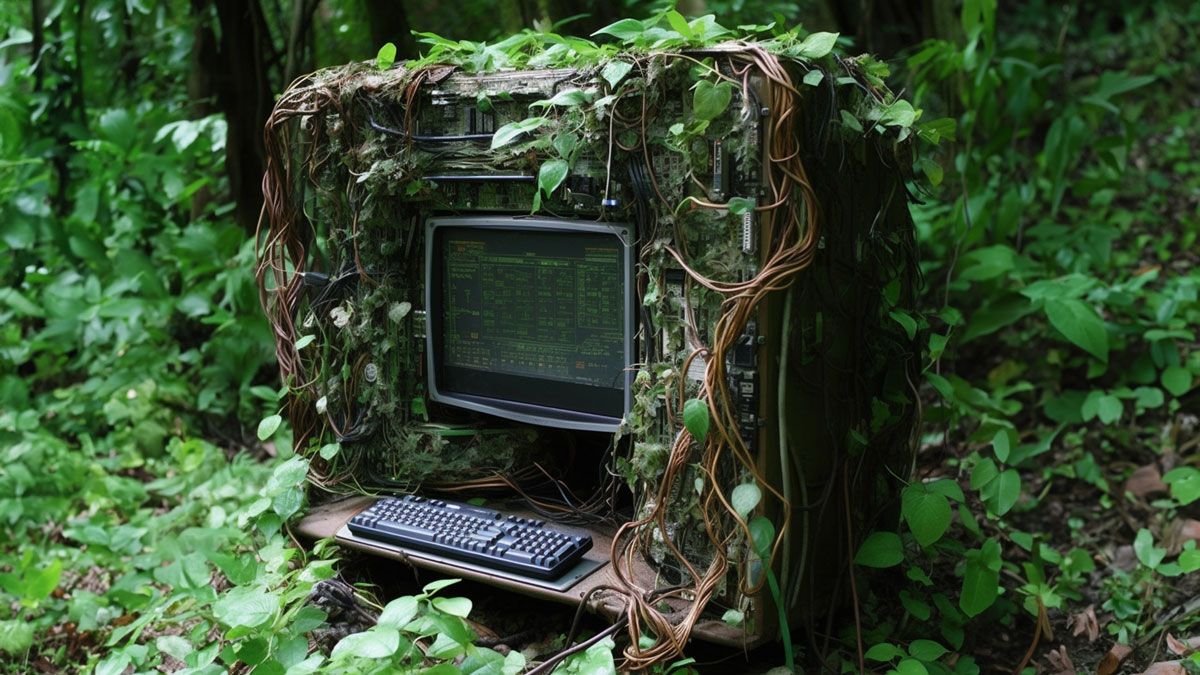Re-Meme #2: The Ethereum for Personal Data

In this Re-Meme mini-series, I outline several ways to contextualize what we're doing here at Re-Public. The hope is that one of these will resonate with you and inspire you to learn more or get involved.
What Ethereum has done for personal finances, Re-Public wants to do for personal data.
With Ethereum, you can hold digital assets independent of any third party. No bank or company can seize them or delete them. You can send assets to anyone and that transaction cannot be blocked or intercepted. It empowers you to do what you want no matter what anyone else does or knows about you.
In the same way, Re-Public wants to put you in true control of your data. You should be able to send your data to anyone you choose without involving an intermediary that you have to trust. Just like you can send crypto assets on Ethereum. And just like you can lose your assets if you lose the seed phrase to your Ethereum account, you should also be able to delete all your data and have it never be recoverable by anyone, ever. If someone can recover it, then you never really controlled it. (Although new forms of social recovery may change this.)
Decentralized Ownership and Distribution
Ethereum decentralization is not yet fully realized. There is a wide gap between the plans and the reality. Much of Ethereum runs on AWS and other centralized infrastructure. But the roadmap makes clear the potential for anyone anywhere to be running a node of the network. In such a scenario, it becomes realistically impossible to shutdown or take control of network activity.

This level of decentralization makes the network autonomous and persistent. The difficulty of coordinating a complete shutdown starts to make it seem less and less possible. This path allows us to lift a technology out of the private realm and into the truly public sphere, beyond nation states or temporary human-made boundaries.
The emergent behavior of thousands of people across the world running Ethereum nodes creates a very resilient and autonomous network. The competitive incentives keeps collusive groups at bay and raises the cost of a takeover beyond realistic levels.
This is currently the best model for Re-Public to follow. The network for data sharing, distribution, and storage must be beyond any single entity's control. To be a truly human technology, it cannot be owned by Apple, Google, or Amazon – each of whom may be only a temporary presence on this earth, even if you believe their motivations are pure.
Yes, it feels naive and arrogant to think that this can be accomplished, but it also seems like the only sane path.
The future of data can't just be that we rely on startups, cooperatives, NGOs, non-profits, nation states, or corporations to steward what is in some ways a material expression of our lives. If for no other reason than each of those types of entities are likely to change or die out over time. How do we preserve our lives and our preferences for how our data is managed in the most permanent way?
Disarming Moloch
Decentralization allows us to at least have a shot at permanence. Something beyond the perishable ideas and norms of today. Something beyond startups, cooperatives, NGOs, non-profits, nation states, or corporations. Something that enables data that our great grandchildren will be able to access and make use of. This model allows us to build something that does what it does no matter what humans do.

Anything less than this will inherently incentivize people to defect from the data network. Personally, I've opted out from many of the mainstream social apps precisely because they are owned by extractive companies. Even if those companies increase in scale to even more dystopian levels of control and coercion, the fraction of people that opts out or escapes may contain the data that humanity needs to survive.
We need the much wider net of an opt-in permissionless network if the goal is to sustainably include as many people as possible.
The only types of networks that have a shot at being maximally inclusive are those that are decentralized, and only those that are owned and operated by their users will achieve the biggest network effects.
Don't We Already Have This?
So many products and companies out there claim to want to give you control over your data. Most of them may even believe that they are truly trying to do so. But each one has a hidden disclaimer of "within reason." And what is within reason is subjective to the world view of that particular company or product.
The future that these companies envision will obviously be a future where the company itself exists. But what if their existence is actually mutually exclusive to individuals controlling their data? Then they will ignore that future and find a compromise of individual control that will allow them to be a major player in the future they imagine that they are creating.
They will do this without realizing it, simply because entities are not designed to see a world where they don't exist as better than a world where they do.
This is why we need data management tools that are open and credibly neutral. Two parties that are trying to destroy each other or two countries at war should still be able to transact data over the network and have faith that the network is not controlled by the other party. Just like Ethereum provides open and credibly neutral tool for owning and transacting digital assets. Ethereum now has a life of its own. It can persist regardless of the fate of any of its builders and funders.
The Cold Start Problem
It's useful to see how Ethereum came to be. The book The Infinite Machine depicts the first few years of Ethereum's development. An organic enthusiasm formed around a whitepaper, a mission, and the unlikely personality of Vitalik Buterin.

Egos clashed, power struggles got ugly, lives were changed. Yet somehow out of all that, the rest of us got a piece of technology that couldn't have been envisioned or built by a single startup, or even a profit-motivated coalition. It's a difficult playbook to recreate.
Rather than attempt to repeat this messiness, I hope we can improve upon it. This Re-Meme series is an invitation for others to offer up their ideas and solutions. To form partnerships among the many teams out there who share the same goals.
Investors Will Be Happy ... Eventually
The most difficult thing to realize right now is that in order to get rich – to level-up the entire economy – we have to not care about getting rich. Just as the open protocols of TCP and HTTP enabled the most profitable companies in history, so will the next generation of open standards and public data infrastructure raise the ceiling on how prosperous an entity can be.
But we're not there yet. We need to stop trying to capture and extract value from building this new infrastructure, or else the next boom times will never materialize.
We're reaching the saturation point with our current extractive economic models in tech. The data economy blossomed due to the lack of awareness about what data is, where it comes from, and how valuable it is.

Now that we're starting to see our data's value, the harms are becoming more clear and we see the parasitic nature of the current models. As this awareness spreads, more people will opt out. The current economy that was predicated on always growing due to ever-increasing data collection will start to contract. People and capital will look for new horizons, new unlocks, new economic models.
That's when people will start to realize that until everyone controls their data, not enough people will want to participate in the data economy to make it viable as it stands now. To keep the economic activity growing, to unlock the next frontier of knowledge and adaptation of the human species, we have to return the value of data back to the sources of data – to individuals.
Blood, Not Oil
Data companies today rely on people to give them data while simultaneously pursuing an economic strategy that impoverishes many of those same people.
ChatGPT, for example, seems poised to siphon up subscription fees by those who are able to afford it and then leave everyone else with a competitive disadvantage – if not completely doing away with entire jobs or careers. All while enriching the corporations that build more and better AI systems that perpetuate the disparity. AI subscription fees are the new tax to remain competitive while creating a whole new class of those who cannot access it. Much like broadband and internet access before it.
Sure you could take a UBI type of approach. It's not a coincidence that the head of OpenAI, Sam Altman, is also working on Worldcoin – with the stated use case of distributing UBI to everyone on earth.
Introducing UBI today without changing our business models would be like giving someone a feeding tube in order to drain their blood. To unlock any sort of society that is significantly fairer than the one we currently have, we need to empower people to donate their blood, their data, voluntarily so that they can flourish and ultimately increase the amount of knowledge for everyone.
If Re-Public, or something like it, is successful, data will provide a more robust, permanent, and uncapped UBI that doesn't rely on any particular entity. It will simply manifest the value already stored in the data that everyone creates simply by existing.
But we need an Ethereum-like network to get there, and that's one way to view what we're building here at Re-Public. We are an open group of pragmatic idealists and we need all the help we can get. Grab a shovel and join in.
Cover image created with Midjourney
